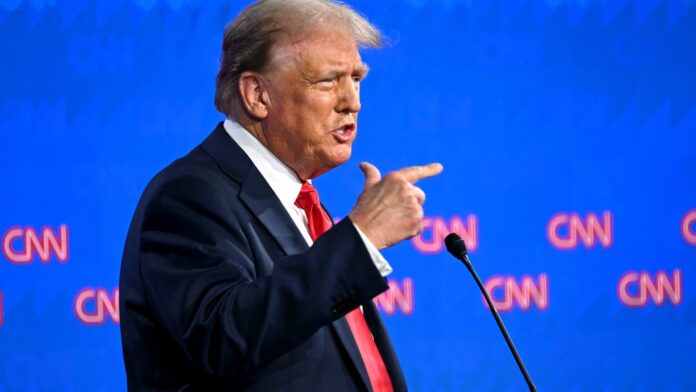Key Falsehoods or Claims:
– President Trump suggests an 80% tariff on China: In the article, President Trump is quoted as suggesting that the U.S. could impose tariffs of “25, 30, 40, 50 or even 80%” on Chinese goods. While this statement may be seen as a negotiation tactic, it is a falsehood to suggest that the U.S. has proposed or implemented an 80% tariff on Chinese imports.
– Newark mayor Ras Baraka arrested at an ICE detention facility: The article reports that Newark Mayor Ras Baraka was not actually arrested at an ICE detention facility, despite initial reports. This false claim can be damaging as it can spread fear and misinformation about the actions of immigration enforcement agencies.
Source and Bias:
– The article is from NBC News, which is generally considered a mainstream and neutral news outlet. However, it’s important to always consider the potential biases of any news organization.
Analysis of Falsehoods’ Impact:
– President Trump’s suggestion of an 80% tariff on China can impact public opinion by creating fear and uncertainty about the state of international trade and the economy. This can also shape public perception of his administration’s handling of trade negotiations and foreign policy.
– The false claim about Mayor Baraka’s arrest at an ICE detention facility can contribute to public distrust of immigration enforcement agencies and perpetuate anti-immigrant sentiments. Misinformation on immigration issues can also influence voter behavior and policy decisions.
Threat to Democracy:
– Lies, falsehoods, and conspiracy theories from political leaders can erode public trust in institutions and the media, which are essential for a healthy democracy. When misinformation spreads unchecked, it can polarize communities, undermine the credibility of democratic processes, and lead to policy decisions based on false premises.
Further Reading:
– For further reading on the impact of lies and misinformation on public opinion and democracy, consider reputable sources such as the Pew Research Center, the Harvard Kennedy School’s Shorenstein Center on Media, Politics and Public Policy, and the Stanford Internet Observatory. These institutions conduct in-depth studies on media influence and misinformation, providing valuable insights into the effects of political falsehoods on society.
Source link
Redirect URL
